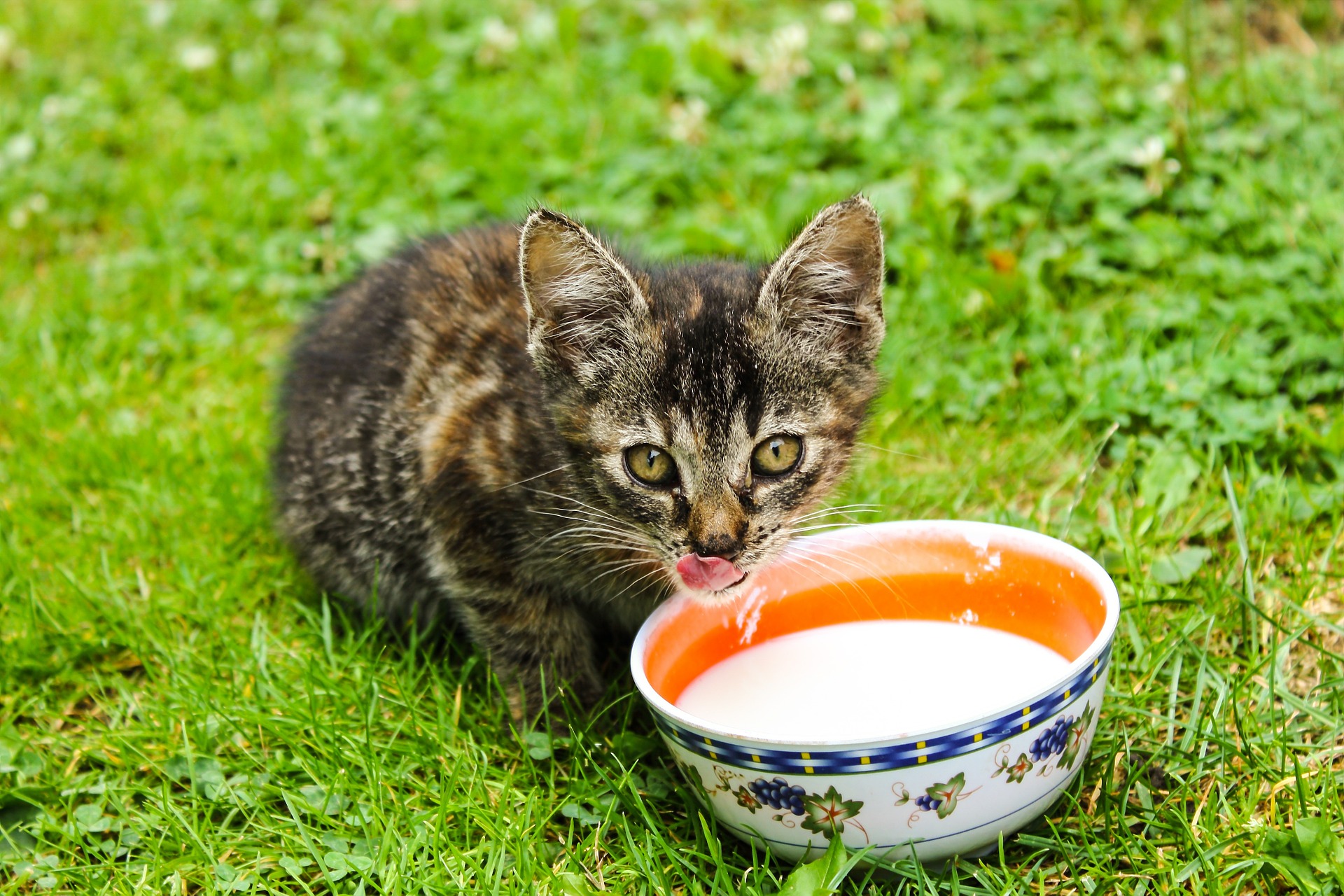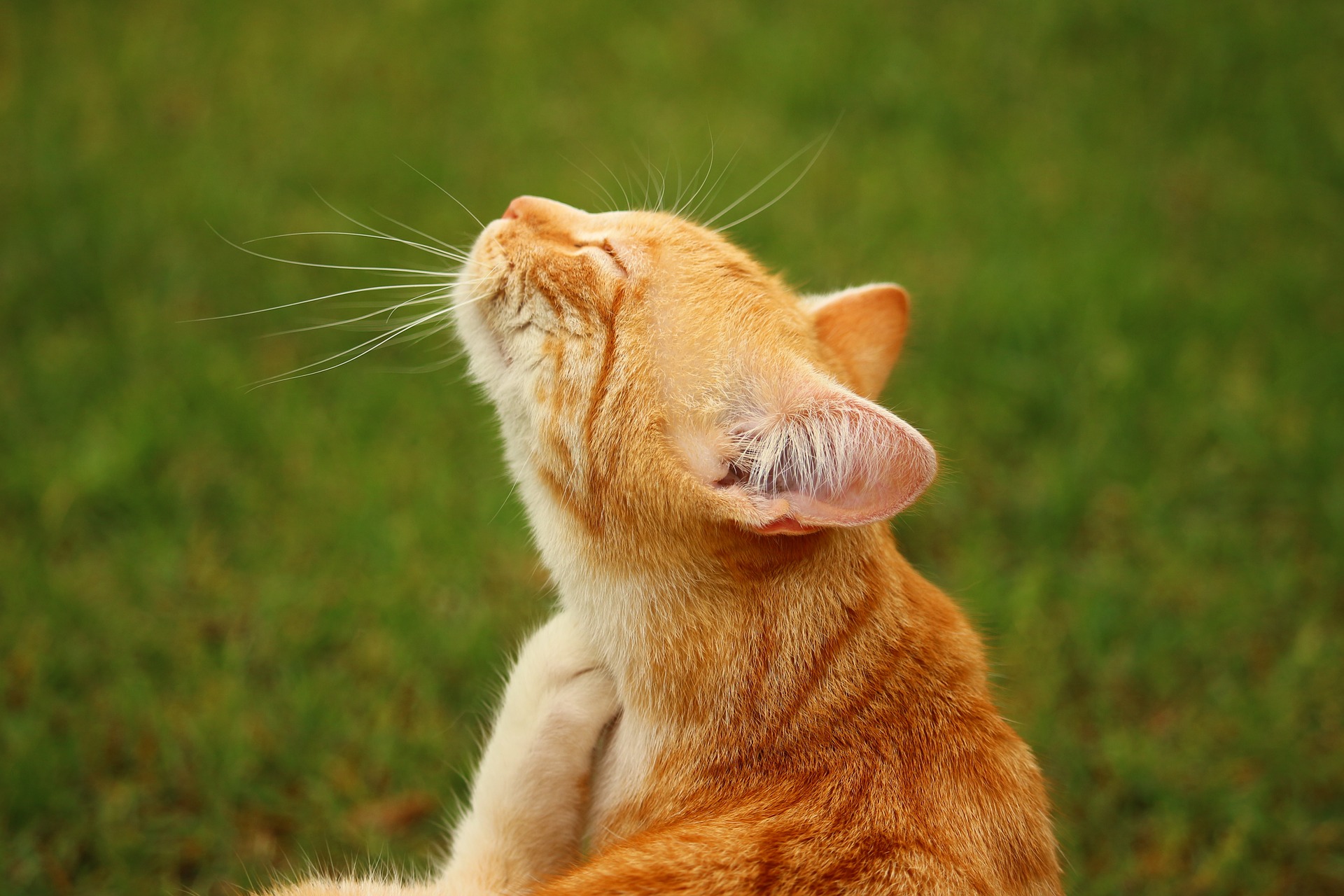Dementia is a well-known disease that can affect humans, especially Alzheimer’s. If you’ve watched a loved one go through it, you know how heartbreaking it can be to see someone forget how to care for themselves, significant life events, and the names of their nearest and dearest. You may start to notice a cat display similar symptoms — they’re angrier than usual and seem to forget where they are (and where the litter box is).
Can cats get dementia, though? The short answer — unfortunately — is that cats can get dementia. However, many signs of dementia in cats can also indicate another issue, so it’s important to work with a vet for an accurate diagnosis. That way, you can make the best decisions for your pet. Still, understanding the signs, causes, and treatment options for cat dementia can empower you to take quick action to keep your cat safe and comfortable.
Can cats get dementia?
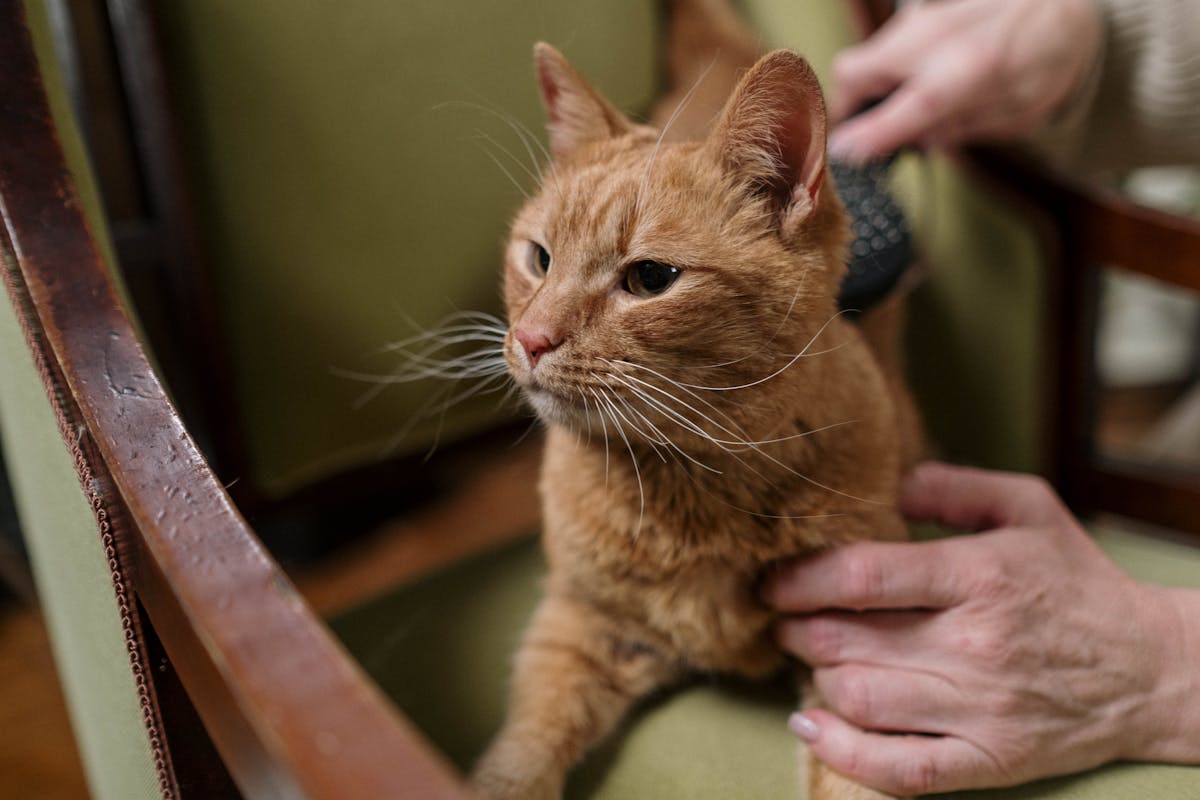
Cats, like humans, can develop dementia. It’s known as cognitive dysfunction syndrome (CDS) and can affect any cat breed, especially as they age. Domestic cats have long lives, sometimes chasing the red dot for well over a decade. That’s great news for kitties and those who love them, but age can increase risks for health issues, including cognitive dysfunction.
A 2021 Vet Record review explains that dementia is a disease triggered by age-related brain degeneration. A protein (beta-amyloid) builds up in the brain, affecting blood flow. Neurons die as a result of this process. Neurons are cells that deliver messages from the brain to the body and are responsible for memory, focus, attention, and sleep-wake cycles. They’re also vital for spatial perception, affecting essential functions like avoiding objects when moving around a room.
Symptoms of dementia in cats
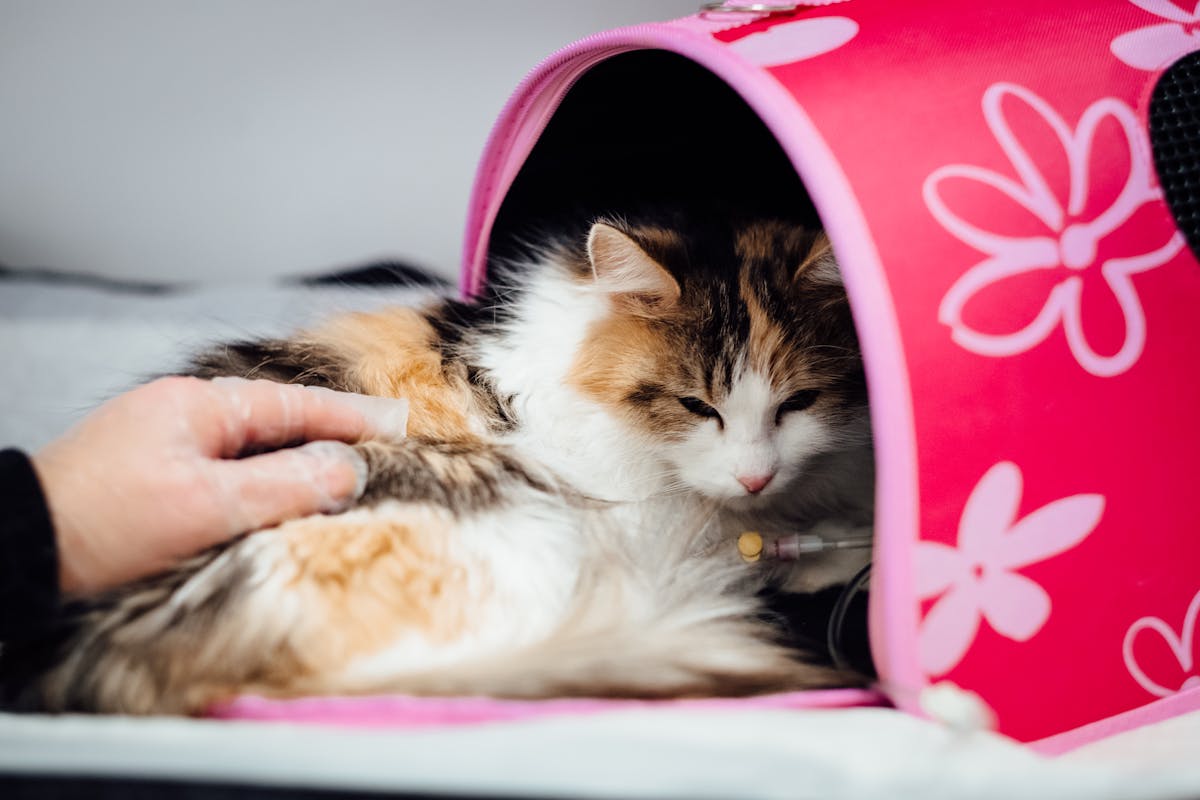
Cats with dementia display telltale red flags. Older research from 2011 suggests that around one-third of cats ages 11 to 14 have a symptom of CDS (not all of these kitties have the syndrome). The slower blood flow to the brain and death of neurons affect their cognitive abilities, and you’ll start to notice new habits and behaviors take hold. Signs of dementia in cats include:
- Disorientation
- Accidents outside of the litter box
- Increased and louder vocalizations, especially at night
- New onset away from home or in unfamiliar areas
- Lower desire to play or engage in ways they used to love
- Disrupted sleep-wake cycles
- Poor appetite
- Poor thirst
Caring for a cat with dementia (what you and a vet can do)

Your cat could be running into obstacles because of vision problems, and sleep troubles can be a stress-related issue. You’ll want to bring your concerns to a vet. Your vet will perform an exam and order bloodwork and X-rays to rule out other potential issues, like kidney or liver disease.
If a veterinarian diagnoses your pet with dementia, treatment options are available.
Treating dementia in cats
There isn’t a cure for dementia. However, you and your vet can keep your pet as healthy and comfortable as can be for as long as possible with management. Treatment options for dementia in cats include:
- Diet tweaks, such as switching to a cat food specifically for senior cats
- Supplements
- Medications for chronic pain or anxiety
Importantly, don’t give your cat medications for humans, and always consult your vet before starting a medication, new diet, or supplement. You might also choose to care for your cat using comfort care in addition to the above treatments. For instance, cats with dementia can benefit from:
- Regular routines, such as daily feedings at the same time
- No significant life changes, such as moves
- Plenty of play and exercise
- Refraining from making changes to the home, like moving furniture or the cat’s preferred perches
- Adding litter boxes to accessible places
- Minimizing long trips outside of the home
- Pets and snuggles as tolerated
How long does a cat live with dementia?
Potentially, a cat could live 5 to 10 years with dementia. However, there’s no hard and fast answer. A cat’s lifespan with dementia depends on numerous factors, including:
- Age
- Symptom severity
- Management of any other applicable health conditions
- How a cat responds to treatment
Ultimately, every cat is an individual. You’ll want to track your cat’s behavior and symptoms and communicate concerns with a vet.
Closing thoughts
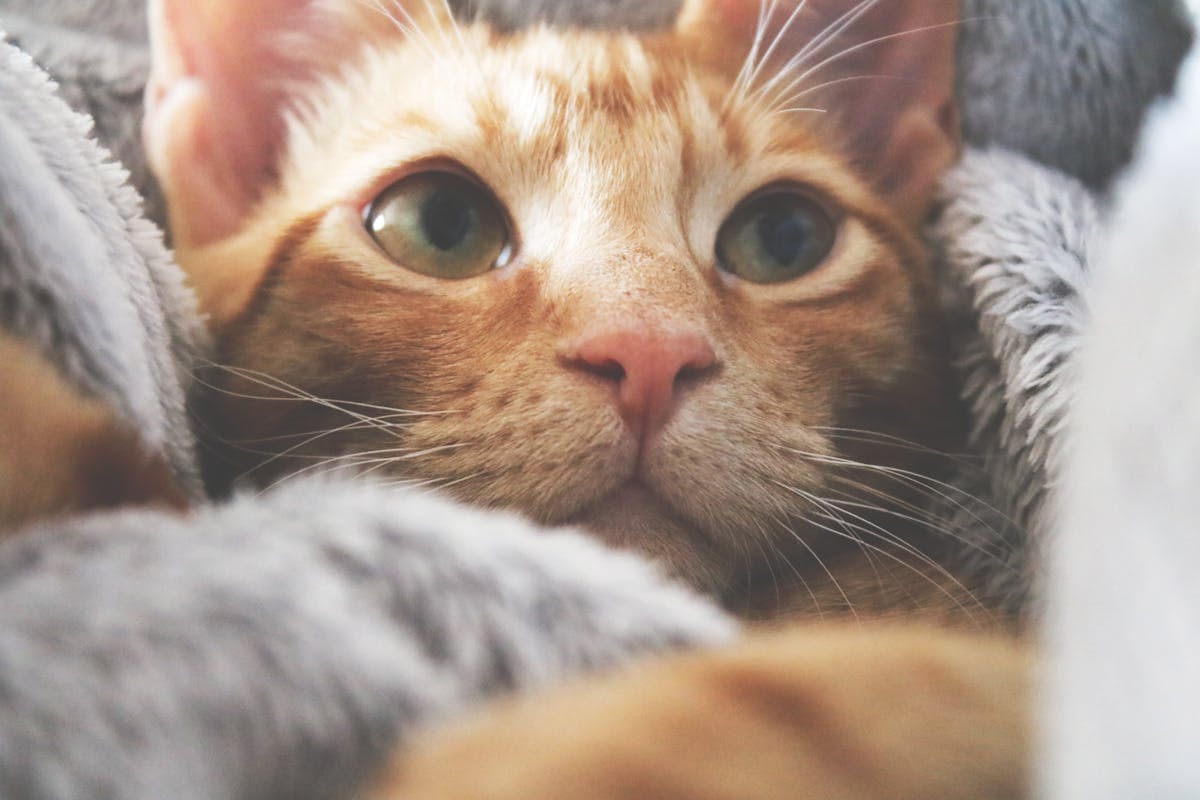
Cats can get dementia, known as cognitive dysfunction syndrome or CDS. The symptoms of cat dementia are similar to what you’ll see in humans: increased irritability, appetite changes, sleep changes, forgetting to potty in the correct place, and declining memory and spatial awareness.
Diagnosing dementia in cats isn’t straightforward, and vets will often start by doing a workup to rule out other conditions. There is no cure, but dementia in cats can be managed with home and medical care. There’s no way to tell how long a cat will live with dementia, and grappling with your pet’s mortality is no fun (to say the least). Lean on your vet — a good one will help you navigate care and make the best choices for your pet’s health with compassion for you (and your kitty).


